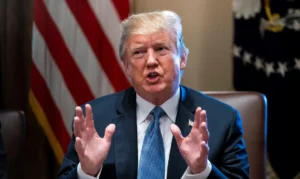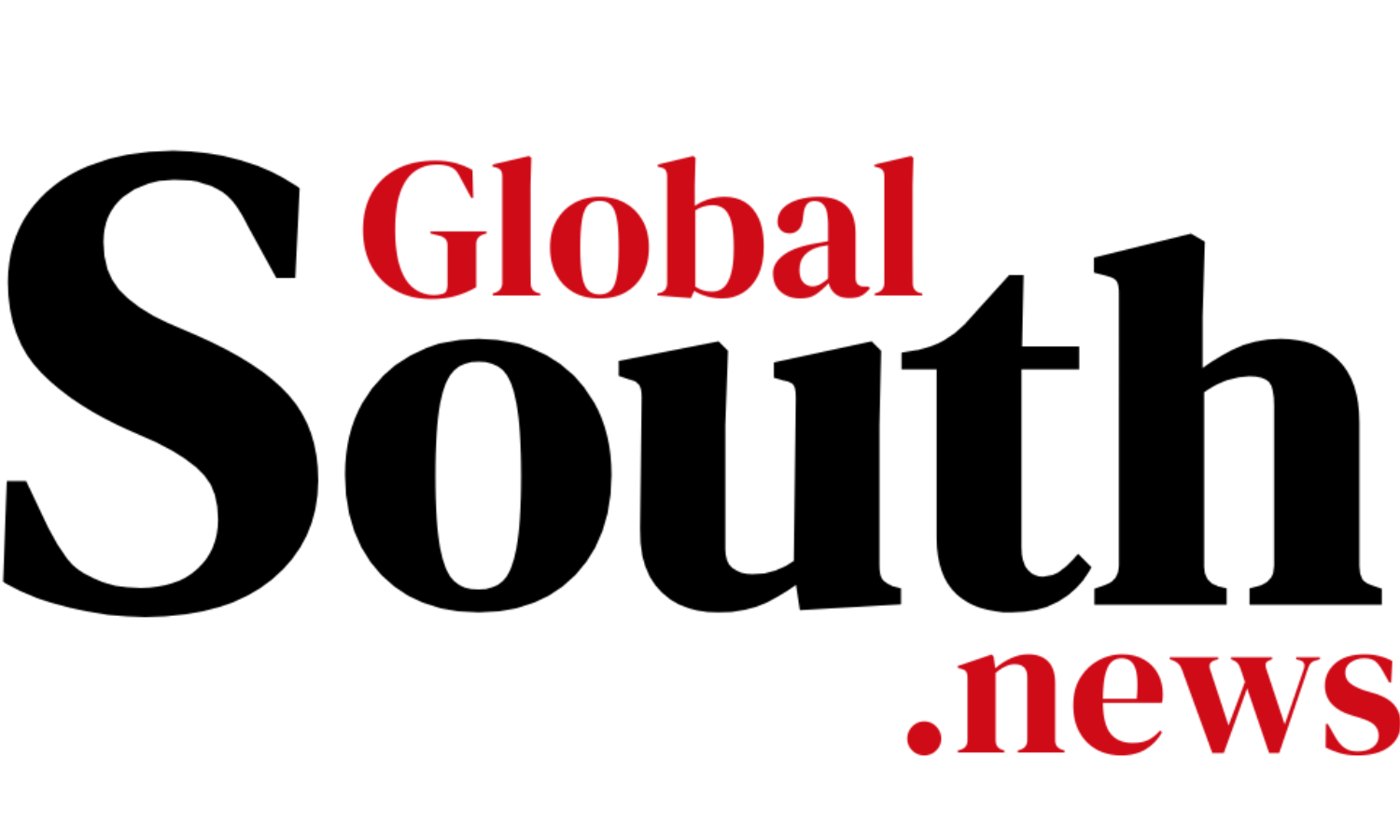
The week is ending with excellent news for the broad democratic front. Considering the latest polls and recent economic indicators, the political situation seems increasingly favorable for the reelection of President Lula.
The Atlas Intel poll released this Thursday reveals a scenario no one imagined just a few weeks ago: if the election were held today, Lula would win the 2026 presidential election in the first round, with 51.5% of the valid votes.
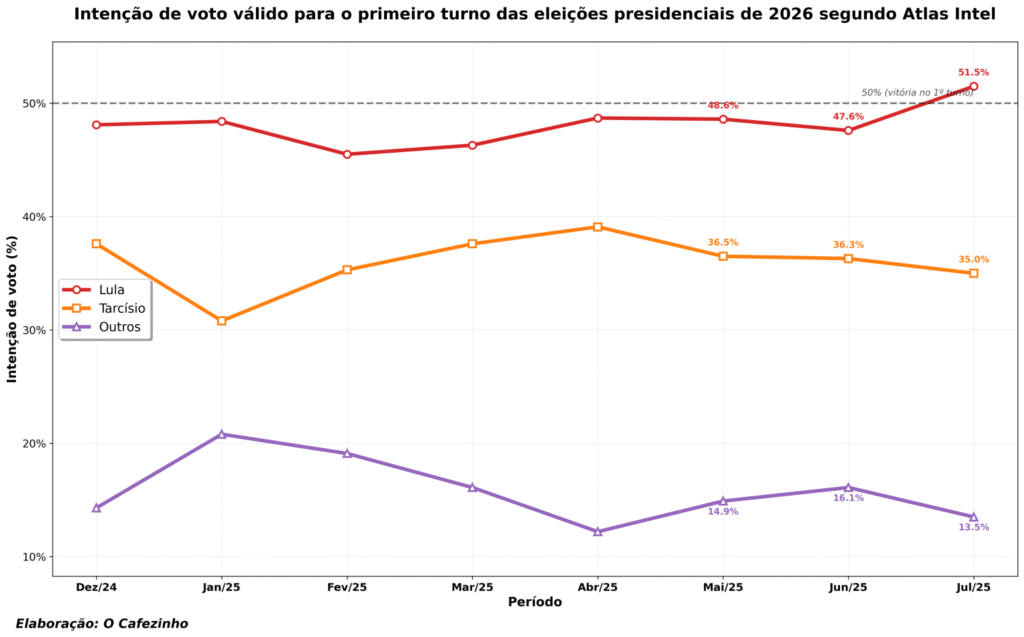
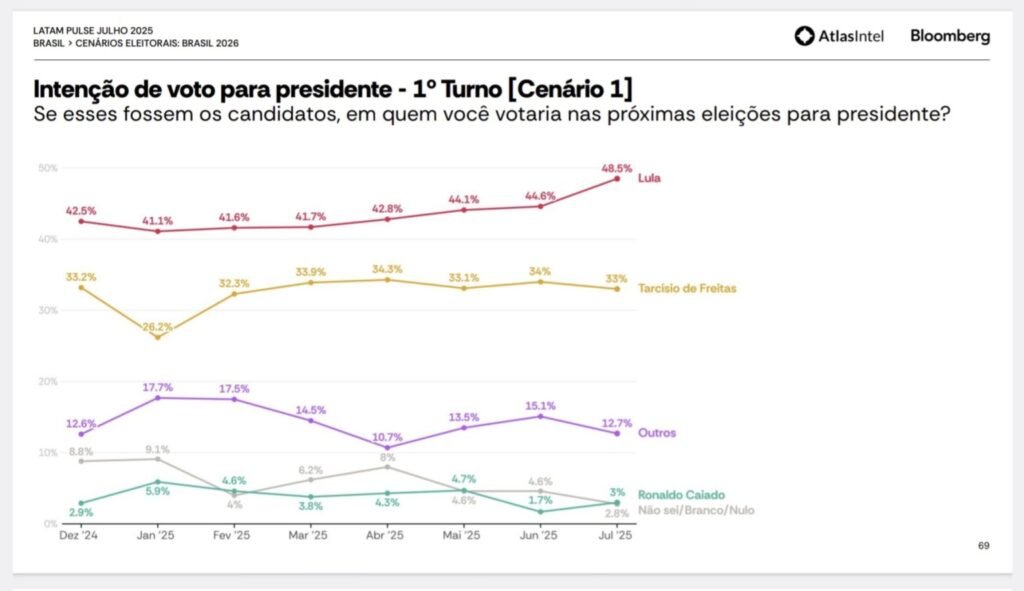
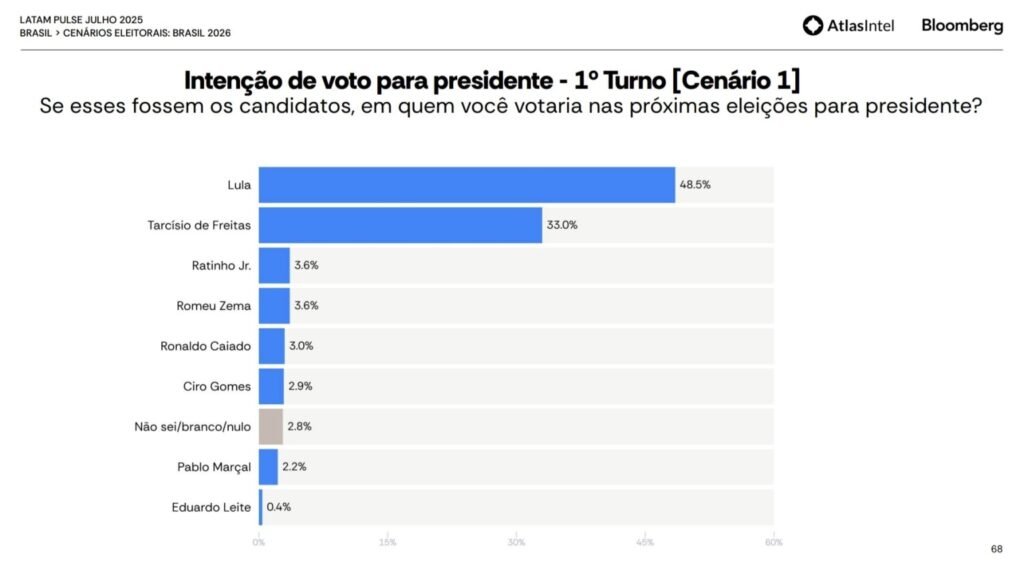
Tarcísio de Freitas, his main opponent, appears with 35.0% of the valid votes, a comfortable difference of 16.5 percentage points in favor of Lula.
In total votes, Lula would have 48.5%, against 33% for Tarcísio. All other candidates would have less than 4%, which shows a quite consolidated electorate. Ciro Gomes, who once scored approximately 10% in some polls, now has less than 3%.
Trump’s attacks on Brazil created a nationalist wave that was very poorly received by the right and has been hollowing out the far-right base.
What may be even more important for this new favorability for Lula is the significant improvement in economic fundamentals.
Furthermore, the issue of tariffs had a happy ending for Brazil—and a sad one for the far-right.
For the far-right, the result was doubly negative: on one hand, they were branded as traitors to the country, sellouts, toadies of the United States, and on the other, as incredibly foolish and incompetent, because they tried everything to harm Brazil and only managed to shoot themselves in the foot.
Eduardo Bolsonaro will have to stay away from the country, and from any pretense of holding public office, for many, many years, and his father’s legal situation is now much worse than before. Jair’s already huge judicial rap sheet now includes involvement in attempted obstruction of justice, treason, and more attacks against our institutions.
Lula, in turn, emerged from the crisis as a diplomatic giant and a hero of the Global South.
Unlike the leaders of Europe, Japan, and others who allowed themselves to be humiliated, President Lula did not back down, did not show weakness, and in the end obtained a better deal than many other countries.
Brazil projected an image to the world of a country that values its political independence and sovereignty, which has been a source of great pride for all the peoples of the world.
From what is known so far, only 36% of our exports will remain subject to U.S. tariffs, but it is likely that Trump will still back down on other items like coffee and meat, as the incidence of tariffs on these items could generate a lot of inflation for the food sector in the United States. Americans cannot replace either our coffee or our meat with products from other origins.
It is always worth remembering that these Trump tariffs constitute the most idiotic, irrational, and self-destructive economic initiative ever taken by a country in the history of the world. They bring devastating financial losses to American companies, inflation for consumers, and enormous diplomatic, commercial, and geopolitical isolation for the United States.
The sectors subject to tariffs, in turn, have already received a promise from the Brazilian government of financing and diplomatic help to find other markets.
Regarding the economic fundamentals, we will discuss them later, but we can say that all the data is improving—employment, income, inflation, and the fiscal situation—to the eternal “surprise” of the representatives of the Brazilian financial market and the mainstream media.
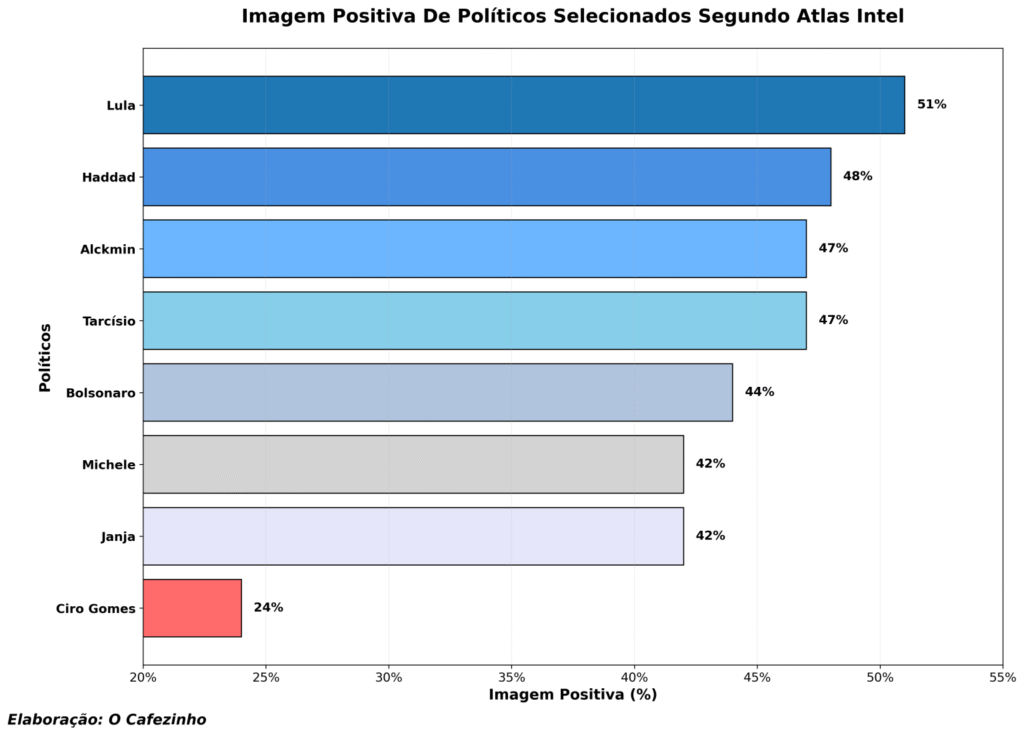
Lula’s Approval Rises While Trump’s Plummets
While Brazil is experiencing a moment of political and economic optimism, the United States has entered one of the darkest phases in its history.
Presidential approval data reveals trajectories that mirror the different political climates.
President Lula’s approval shows a trajectory of continuous improvement. According to Atlas Intel, from March 2025 to July 2025, presidential approval jumped from 44.9% to 50.2%, a growth of 5.3 percentage points in just five months.
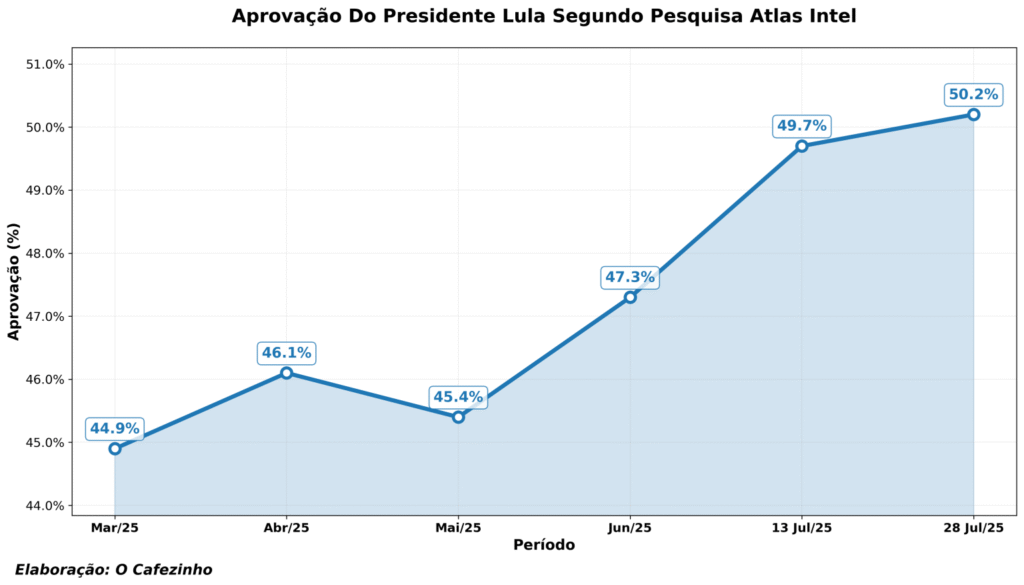
On the other side of the continent, Donald Trump is experiencing the opposite movement. In the same period that Lula was consolidating his recovery, the American president’s prestige plummeted from 50.1% in January 2025 to 44.3% in July 2025, a drop of 5.8 percentage points.
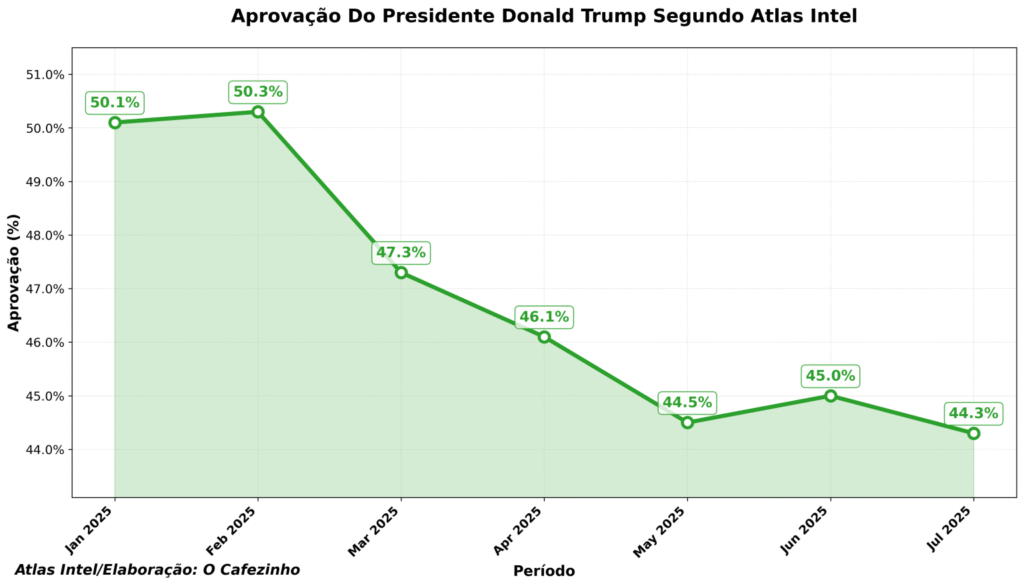
Another interesting piece of data from the Atlas Intel poll released today was the decrease in Brazilians’ concern with three major national problems: corruption, crime, and the economy.
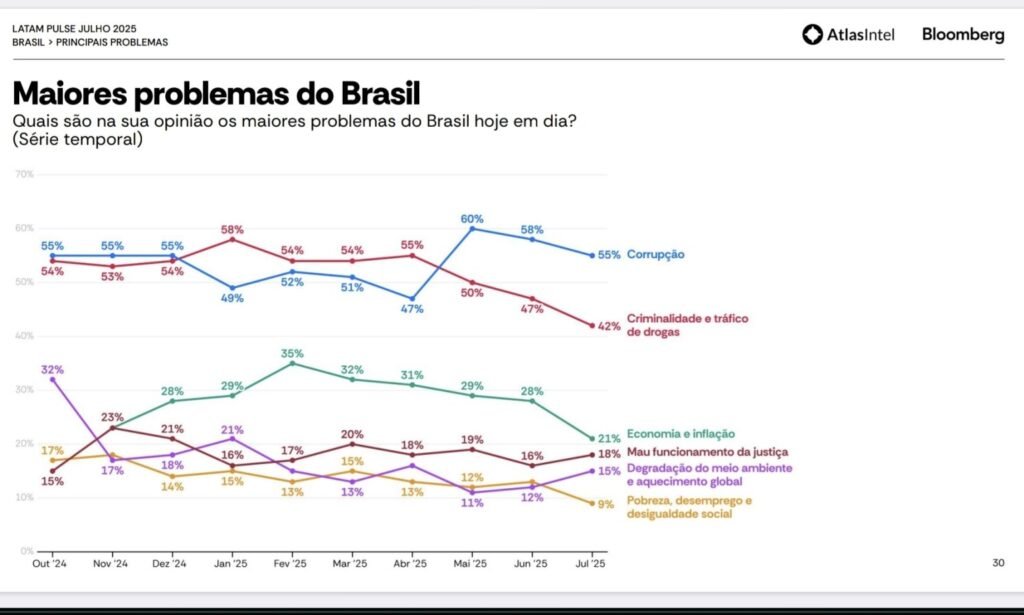
The Numbers That Sustain the Optimism
The labor market is experiencing its best moment in decades.
In the second quarter of 2025, the unemployed population fell by 17.4% compared to the previous quarter, dropping to 6.3 million people at the end of June. This means that, in just three months, 1.3 million people left the ranks of the unemployed.
Compared to the same quarter of the previous year, the drop in unemployment was 15.4% (1.1 million fewer people).
With this, unemployment in Brazil fell to 5.8%, the lowest rate in the historical series of the IBGE (Brazilian Institute of Geography and Statistics).
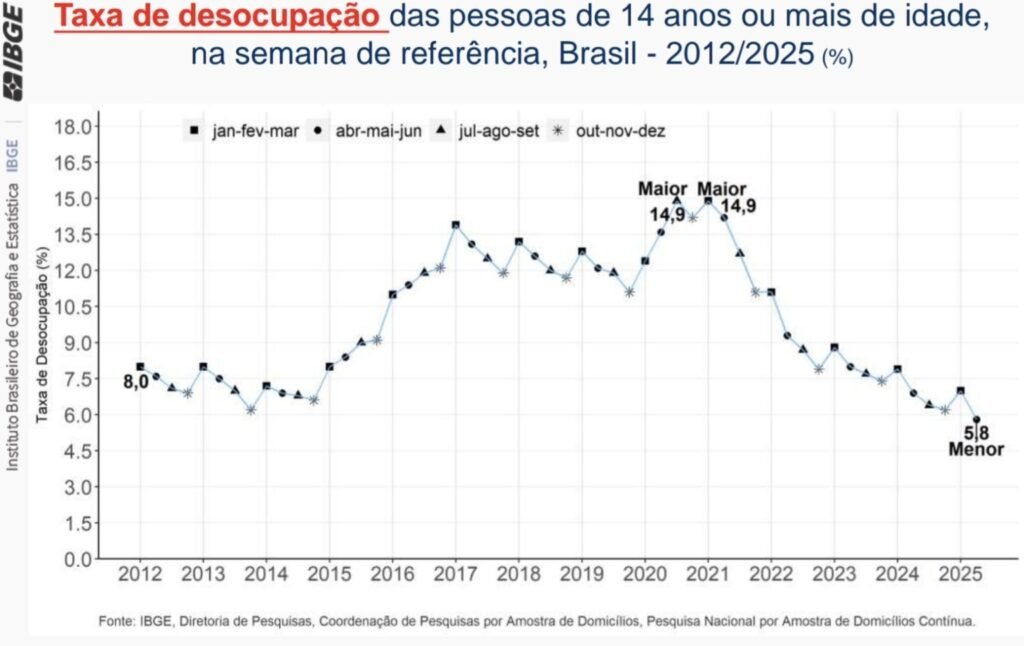
At the same time, the number of employed people grew from 99.8 million in June 2024 to 102.3 million in June 2025, an increase of nearly 2 million new jobs.
The real income of the Brazilian worker shows a trajectory of continuous growth. The average real income grew from R$ 3,074 in December 2022 to R$ 3,369 in June 2025, a growth of 9.6%, already discounted for inflation.
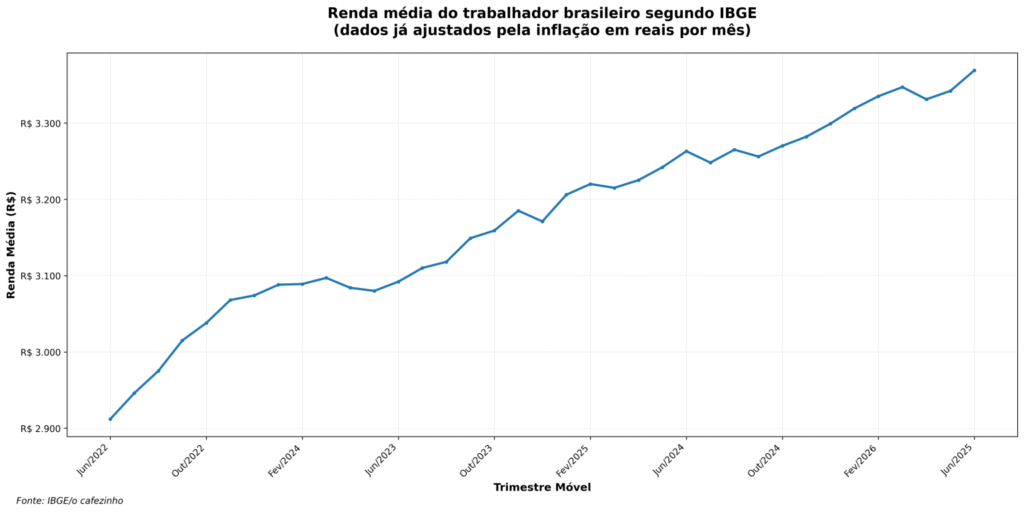
Inflation, in turn, remains under control.
The IPCA-15, the IBGE’s inflation indicator, was only 0.33% in July 2025, which is a low percentage for a single month.
If all months had an inflation of 0.33%, the inflation over 12 months would be 4.05%, below the ceiling of Brazil’s economic policy target, which is 4.5%. Today, the accumulated over the last 12 months, according to the IPCA-15, is 5.3%.
Special emphasis should be given to food consumed at home, whose prices fell by 0.40% in July, the third consecutive decrease.
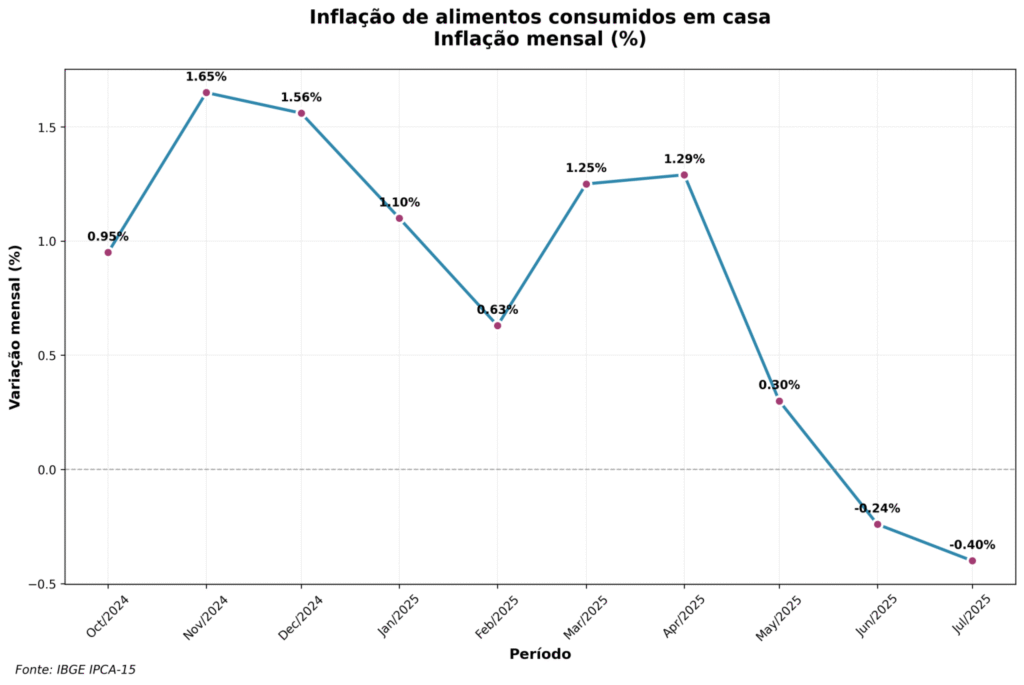
In the fiscal field, the results also surprised positively. The federal government recorded a primary surplus of 0.15% of the GDP, in the accumulated 12 months up to June, hollowing out the fiscal terrorism campaign that the “widows of Paulo Guedes” have been promoting since the beginning of the Lula 3 government.
Contrary to what Milei’s Argentina has been doing, this improvement in public accounts did not come through drastic cuts in investments or social programs, but rather from the growth in tax revenue driven by greater economic activity and formalization of the labor market.
The nominal result of the consolidated public sector, which includes the payment of interest on the public debt, has been showing consistent improvement since the beginning of the year, with the deficit falling from 8.09% in January to 7.3% in June, in the accumulated 12 months.
The importance of fiscal robustness cannot be underestimated, because it opens doors for more public and private investments over the next few years, in addition to offering an important showcase for Lula’s electoral campaign in 2026.
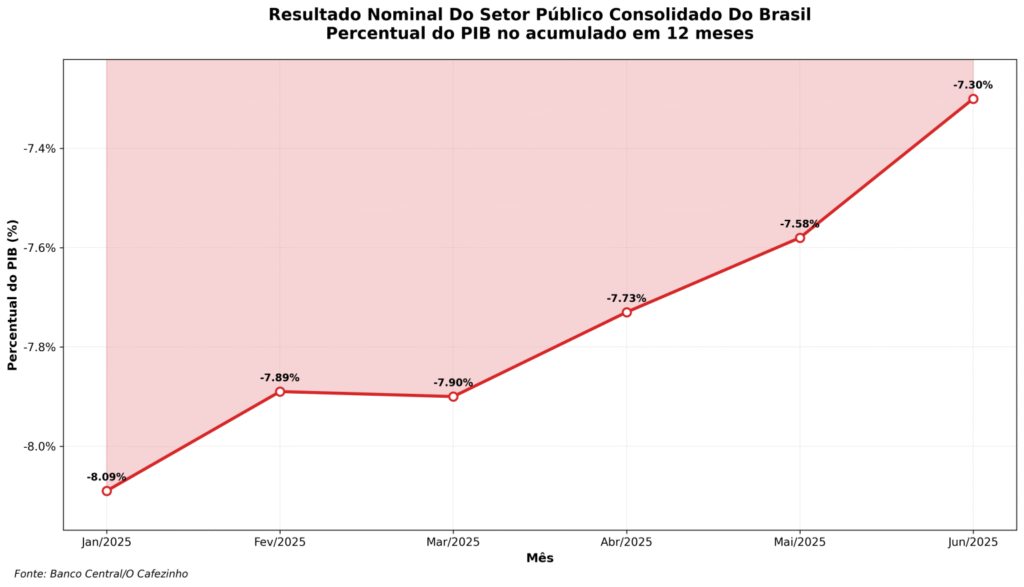
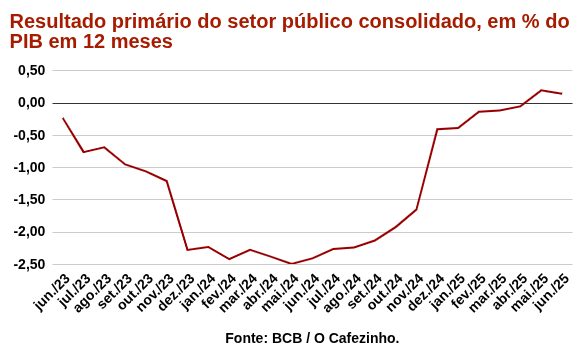
All these indicators help to explain the recovery of presidential approval and the improvement of the electoral prospects of the broad democratic front.
In a way, some economic indicators seem even more important to me than voting intention polls, because they are solid fundamentals that will hardly be shaken by minor political turbulence or external pressures.







